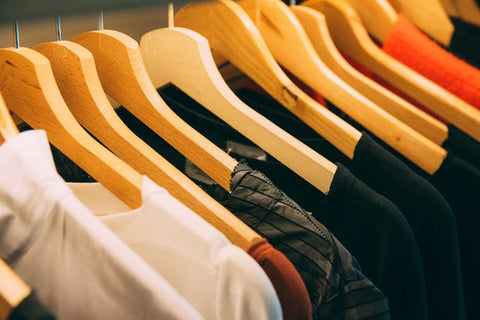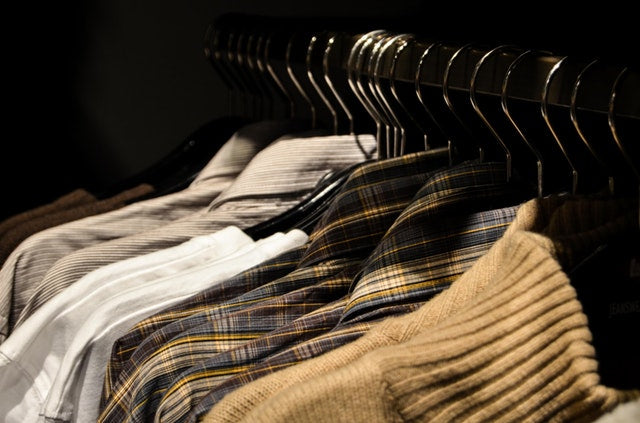“Slow Fashion” may seem like a bizarre term, but if you dive into it, you will discover that it is a movement started back in 2007 that promotes the ethical, sustainable and environmentally friendly use of fabrics and textiles in fashion.
If you need a definition, “slow fashion” means designing clothes that use ethically sourced and produced materials that are then used to make longer lasting garments. The fact that the garments are so durable ensures they don’t need to be replaced as quickly; lessening the effect the production process has on the environment.

Toad & Co.
Toad & Co. are one of the leaders in ethical and sustainable clothing. They make high-quality garments with very high-quality materials to ensure long-lasting clothing that will not need to be replaced any time soon.
The company itself backs and supports petitions that aim to lessen fossil fuels, introduce carbon caps and keep public lands public. Their business also supports people and charities with disabilities.
Their support of people with disabilities extends to the fact that they donate a portion of each sale to aiding those with developmental disabilities achieve more in life.

Absolutely Bear
Absolutely Bear is a fairly new fair trade business that is based in London. All of their suppliers are part of the Fair Wear Foundation, which ensures workshop and factory conditions are kept up to a legal standard.
The menswear range may not be the biggest, but supporting this small brand also means you will be supporting smaller charities, so picking up an item or two will help those who need it the most.

Patagonia
Patagonia has quickly become the leader in ethically sourced and produced clothing. Even though they have a massive range, and supply millions of garments around the world, they do not sacrifice their mission to remain environmentally friendly.
They have a fully transparent supply chain that anybody can access, they also perform regular check-ups on all of their factories to ensure conditions are at the very best of standards. They also donate 1% of their sales profit to environmental charities year-round.

Real + Simple Denim
Real + Simple Denim is a South African based ethical clothing company that specialises in long-lasting denim. They make limited numbers of products to ensure they produce the highest quality clothing that will last longer than anything else you own.
The company uses local craftsman to help uplift and empower the community around them, ensuring local people are able to support themselves.

Nau
Nau is one of those brands that perfectly blends the rebellious spirit with sustainable materials and designs. They design clothes that fit into your lifestyle, whatever it may be, they pride themselves on their versatility.
Their clothes are designed to change with the seasons and be versatile enough to fit into any climate and weather, thus ensuring you do not have to purchase new clothes every time the season changes. This lowers your carbon footprint and contributes to saving the environment.

Thought
Thought Clothing, previously Braintree Clothing, is an Australian company that is now based in London. With ranges for both men and women, they champion the use of 4 main, sustainable materials; bamboo, cotton, wool, and hemp.
Being a founding member of the Ethical Fashion Forum, Thought Clothing is unique as they make their clothing from start to finish, in the same country, further reducing the carbon footprint.

People Tree
People Tree is another leader in the ethical clothing game. With more than 25 years of experience producing and selling fair trade and environmentally friendly clothing, their knowledge and expertise are evident.
Their producers are dotted across 13 different developing countries, and they follow fair trade guidelines across the board. For example, they do not use azo dyes, which are very common in the clothing industry, but become incredibly toxic once they start to degrade.

Komodo
Komodo is a London based company which focuses on using 4 environmentally friendly and ethical materials, namely cotton, hemp, bamboo and Tencel. They have been advocates for sustainable clothing since the nineties.
Each year, the brand travels and spends at least two months a year at each of its factories in Kathmandu, Bali, India and China. All of these factories are subject to an incredibly strict ethical code of conduct that combats the trends of poor working conditions that one would usually expect from factories in these countries, and encourages such factories to follow in their ethical footsteps.

The White T-Shirt Co.
The White T-Shirt Company does one thing and does it incredibly well. They produce high-quality white t-shirts, made with highly sustainable organic materials. They also use environmentally-friendly production techniques to keep the process ethical from start to finish.
They are upfront with their supply chain and dedication to their social responsibilities, which are fully evident and traceable. They have expanded their range, with t-shirts in different colours, neck designs and lengths.

Finisterre
Finisterre had a goal, which stated that by the end of 2017, they would be completely fluorocarbon free; fluorocarbon being a water-pollutant. Fluorocarbon is often used for waterproofing in clothing.
They use organic and recycled materials to make their clothes, which are designed for the outdoors. Should your clothing becomes damaged or tatty, you have the option to send the item back to the factory to be repaired.

History of Slow Fashion
Sustainable fashion came to the forefront in the late 1980’s and early 1990’s. Brands like Patagonia and ESPRIT were the leaders in slow fashion when they wanted to make their brands more sustainable.
The owners of these brands were keen outdoorsmen, and they were witness to the effects their industry was having on the environment. They commissioned research into finding out the impact their fibres were having.
Through the 90’s and early 2000’s, many brands joined the movement and made sweeping changes to ensure they were fully sustainable and ecologically friendly. Patagonia and ESPRIT were quick to point out that exponential growth and consumption were the main culprits damaging the environment.
These brands set out to make and design clothes that were not only environmentally friendly but also well-made and long-lasting, thus slowing down the need for consumers to constantly purchase new clothing and therefore lessening the impact on the environment.
Many companies and clothing brands across the planet are making it their mission to produce high-quality, versatile and sustainable clothing that can replace mass-produced garments.

How to Tell if a Brand is Ethical
Ethical clothing may be the current trend around the world, but some brands are using this as a way to hide the fact that they themselves are not sourcing and producing ethically. It has become quite shady in some instances, but here are some easy ways to find out if a brand is doing their part for the environment, and their workers, or not.
The first place you can look is on the brands' policy page. If a brand doesn’t have anything to hide, they will have extensive information about every step in their sourcing and production stages.
This may be a simple test, but it isn’t completely reliable as it isn’t difficult to just lie on that page. The next thing is to do research on all their claims, if some of them, or all of them, aren’t true, there will be articles online refuting their claims.
The next thing you can do is look for ethical and fair trade certification symbols on the brands' website. These certifications hold their weight as they are received when a brand passes rigorous tests and deep dives into every step of their process.
These certifications are all from third-party organisations, and it means that the brand has met the ethical criteria required to be called ethical and environmentally friendly. These organizations are extremely reliable and informative, Fair Trade being the most famous.
Another route you can do is to just Google the brand. We live in a world where every piece of dirt on someone or something famous is written about, this is a simple way to find any indiscretions on the part of the brand.
You can also just email a brand with your questions and concerns. In some cases, they won’t respond, but when they do they will often ether back their claims with third-party research that was done on them, or be even vaguer, either way, you’ll get the answers you are looking for.
You can also research businesses that sell or promote ethical clothing. This way at least shows you that there are people and other brands in the know that are supporting said brand. There is no way they would put their ethical reputation on the line for a brand that doesn’t support them.
There are also some potential red flags that can be found within the brand's company policy. Some important ones would be saying they are Fair Trade, but if you take a closer look, you may find only a small part of their massive line may be Fair Trade.
Another one would be a company saying something like “Made in the United States”. This may mean that the clothing is made in the US, as in sewn or created, but they could still be sourcing their materials and labour from sweatshops across the globe.
Another red flag, and possibly one that is the most aggravating, is when a brand talks about donating some of their profits to charities. Yes, they may actually be donating profits, but that doesn’t always mean the clothing they are making is produced ethically.

At Nic Harry, we are proud to use a highly sustainable material such as bamboo across our range. We do our part to reduce our carbon and environmental footprint, while still producing high end, quality items of clothing.


